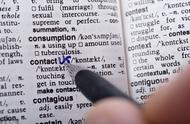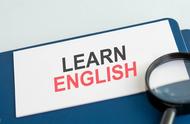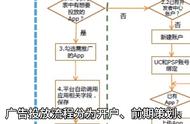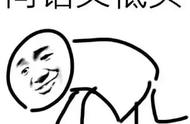英语句子按用途可分为:陈述句、疑问句、祈使句和感叹句。
★ 陈述句 ★经典习题
1. Grandpa is reading a newspaper now. (改为否定句)
Grandpa ( ) a newspaper now.
2. Li Lin listens to English programs on the radio. (改为否定句)
Li Lin ( ) to English programs on the radio.
3. I think you will be a good teacher. (改为否定句)
I ( ) think you ( ) be a good teacher.
4. Tom has been to Disneyland in Hong Kong. (改为否定句)
Tom ( ) to Disneyland in Hong Kong.
key:
1. isn’t reading
2. doesn’t listen
3. don’t; will
4. hasn’t been
考点点拨
陈述句用于陈述一个事实或表明一种看法,包括肯定结构和否定结构两种。
在肯定结构中,谓语动词不含否定词;否定结构在be动词、助动词或情态动词后加not。
除了not外,用其他否定词 (如:no, never, hardly, seldom, little, few, none等)也可以构成否定句。
★ 疑问句 ★经典习题
1. Jenny often gets up at five past six. (改为一般疑问句)
Jenny often ( ) up at five past six?
2. That amusement park saw lots of tourists during the holiday. (对划线部分提问)
( ) that amusement park see lots of tourists?
3. — ( ) is your favorite sportsman?
— It’s hard to say. Well, I like Sun Yang very much.
A. How
B. When
C. Who
D. What
4. — ( ) is the Winter Olympic Games held?
— Every four years.
A. How far
B. How often
C. How soon
D. How long
5. Our monitor is never late for school, ( ) ?
A. does he
B. doesn’t he
C. is he
D. isn’t he
key:
1. Does; get
2. When did
3-5. CBC
考点点拨
疑问句用于提出问题,包括一般疑问句、特殊疑问句、选择疑问句和反意疑问句。
★一般疑问句通常用来询问一件事情是否属实,要求对方用Yes或No回答。
★特殊疑问句是以特殊疑问词开始的以询问信息为目的的疑问句。
回答特殊疑问句时不能用Yes或No,而要根据实际情况回答。
常用的特殊疑问词有:what, who, whose, which, when, where, how, why;疑问词组有how much, how many, how often, how long, what time等。
★选择疑问句提出两个或两个以上可能的答案供对方选择。
选择疑问句不能用Yes或No回答,而是让对方根据实际情况进行选择回答。
★反意疑问句由两部分组成,前一部分为陈述句,后一部分为简略的一般疑问句,通常遵循“前肯定、后否定或前否定、后肯定”的原则。
如果陈述句中有hardly, nothing, never, little, few, nobody, neither等表示否定意义的词,反意疑问句要用肯定形式。回答时,事实是肯定的用Yes,事实是否定的用No。
★ 祈使句 ★经典习题
1. ( ) stand too close to North Americans. Give them more personal space.
A. Doesn’t
B. Aren’t
C. Can’t
D. Don’t
2. ( ) up early tomorrow, or you can’t catch the train.
A. To get
B. Get
C. Getting
D. Got
3. — Don’t forget to turn off the lights when you leave the room.
— Of course, I ( ) .
A. don’t
B. won’t
C. mustn’t
D. can’t
4. — Tom, ( ) your T-shirt right now! It looks so dirty.
— Sorry, Mum. I was playing basketball the whole afternoon.
A. puts off
B. putting off
C. to put off
D. put off
5. ( ) stay up too late. It’s bad for your health.
A. Don’t
B. Do
C. Not
D. please not
key:1-5 DBBDA
考点点拨
祈使句用于表达命令、要求、请求、劝告或建议等。
在祈使句中,通常省略第二人称主语you。肯定形式常用动词原形引起句子,其否定形式是在动词原形前加don’t。
★以let引起的句子也是祈使句的一种结构。例如:
Let me tell you the way to the cinema.
Let’s go swimming after school.
★为表示礼貌,在祈使句的句前或者句末加please。句末用please时,前面通常加逗号。
★ 感叹句 ★经典习题
1. ( ) brave boy! He saved his little sister during the earthquake.
A. What
B. How
C. What a
D. How a
2. — China’s first ice hotel opens in Inner Mongolia.
— Really? ( ) exciting news!
A. What an
B. What
C. How
D. How an
3. Look! ( ) beautiful flowers!
A. How
B. How a
C. What
D. What a
4. — ( ) interesting the movie Coco is! Have you seen it?
— Yes. I saw it last Sunday.
A. How
B. How an
C. What
D. What an
5. — ( ) they are talking to each other!
— Yes. They are really happy to see each other again.
A. What excited
B. How excited
C. What excitedly
D. How excitedly
key:1-5 CBCAD
考点点拨
感叹句是用于表示赞美、惊叹、喜悦、愤怒等感情的句子。一般由what或how引导,句末用感叹号。
★what引导的感叹句强调名词,其结构为:What ( a / an) 形容词 名词 ( 主语 谓语)!如:
What a nice present it is!
What fine weather it is today!
What important jobs they have done!
★how引导的感叹句强调形容词或副词,其结构为:How 形容词/副词( 主语 谓语)!如:
How surprised the students are!
How fast James runs!
,













